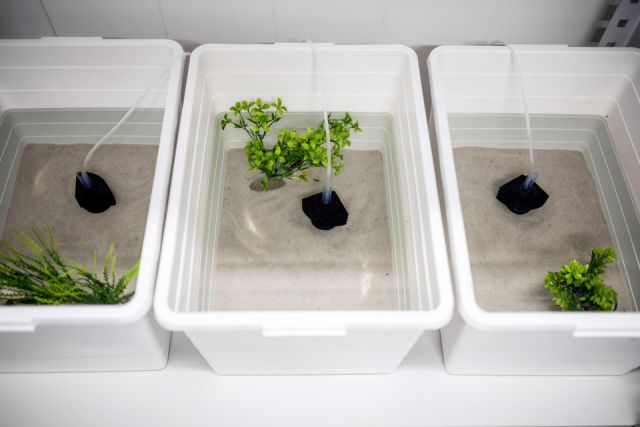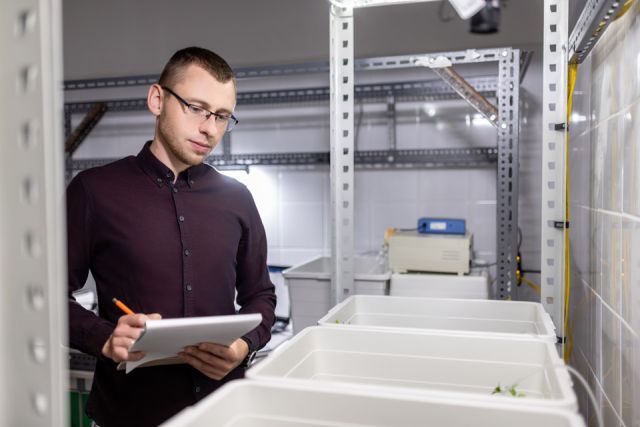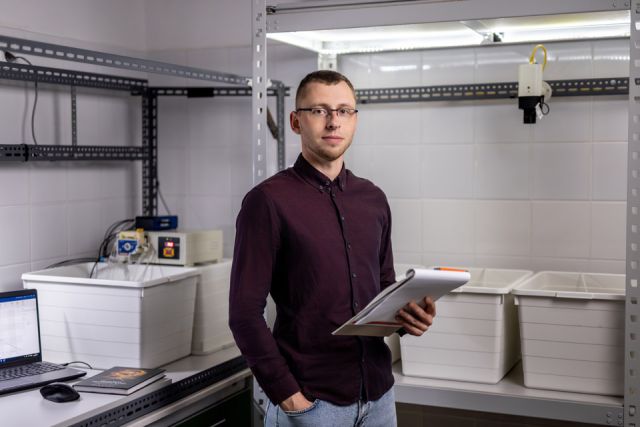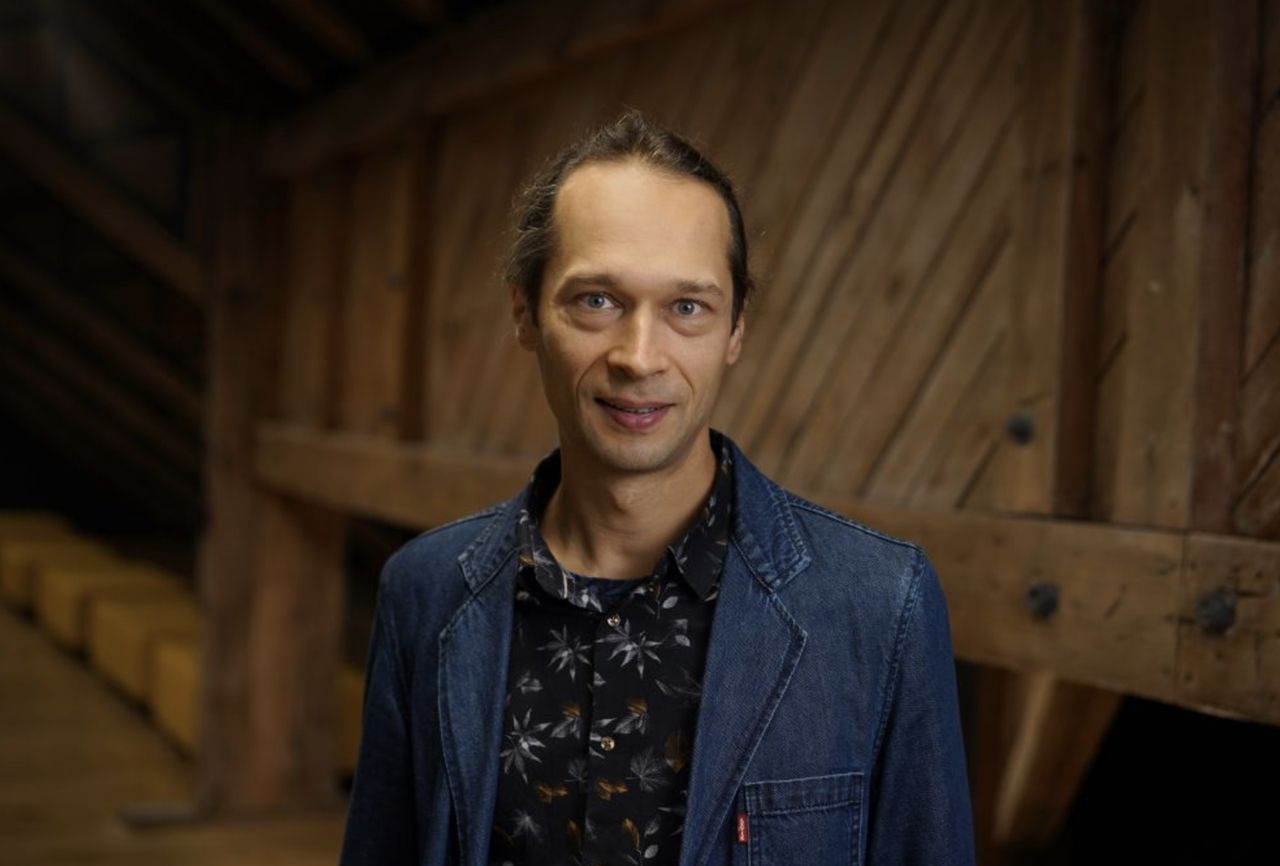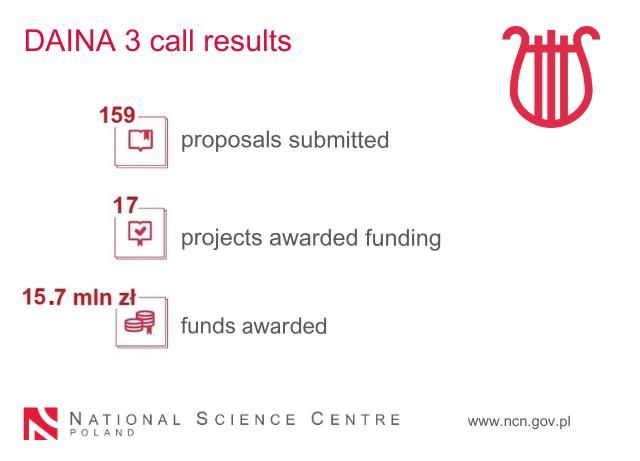“We could invite editors of top journals and ERC panel members to get to know us and see that we are doing good science. Western countries are using such strategies to strengthen their position, and we should do so too,” says Prof. Róża Szweda, a chemist specialising in polymers and winner of NCBR, NCN and ERC calls. In an interview with Anna Korzekwa-Józefowicz, she talked about her research, working conditions in Poland and the preparation for her ERC grant application.
Prof. Róża Szweda specialises in macromolecular chemistry, deals with
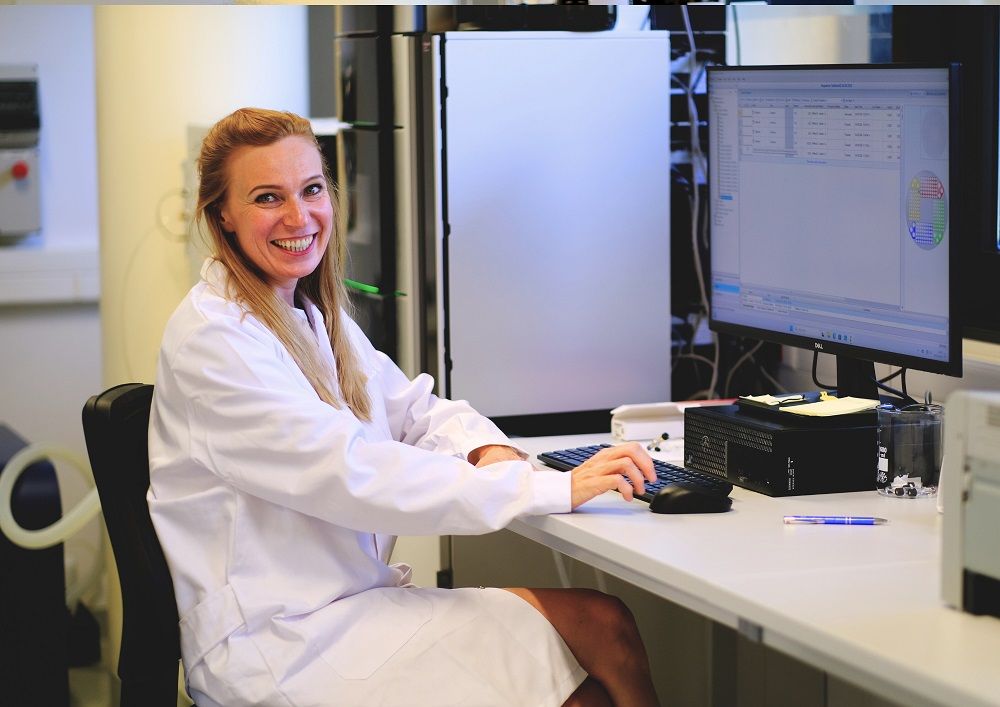 Prof. Róża Szweda, photo from private archive
innovative materials that could be used in a wide range of technological and medical applications, she works at the Adam Mickiewicz University in Poznań. “We are transforming chemistry into green chemistry. We are creating new macromolecules to enable chemical reactions that are unattainable with the current state of knowledge,” she says.
Prof. Róża Szweda, photo from private archive
innovative materials that could be used in a wide range of technological and medical applications, she works at the Adam Mickiewicz University in Poznań. “We are transforming chemistry into green chemistry. We are creating new macromolecules to enable chemical reactions that are unattainable with the current state of knowledge,” she says.
The researcher has carried out three NCN projects and was awarded a European Research Council Starting Grant in 2023. As part of the SHAPE project “Evolution of shape-defined macromolecules into functional systems,” she plans to create macromolecules that will be able to mimic the functions represented by living matter. The project started this month.
“All living organisms, including us, are made up of chemical molecules. The fact that the hand signal reaches the brain, that we move, that we speak, is due, among other things, to proteins. They are responsible for regulating processes between cells and organs that affect our growth, development, metabolism, mood, behaviour. Proteins, being macromolecules, are made up of amino acid subunits and the functions that a protein performs are encoded in their sequence, i.e. the order in which the amino acids are arranged in the chain. For me, a polymer chemist, amino acids are the equivalent of monomers,” the researcher says. She adds that in the ERC project she wants to use the principle of sequence control, that nature invented for proteins, and transfer it to synthetic polymers – molecules unrelated to biology. “We want these polymers to fold into specific structures and perform specific functions. We want to use a laboratory evolution approach and create synthetic polymers with controlled sequences,” she explains.
The researcher and her collaborators focus on the problem of selectivity of catalysis function. “Selective chemical reactions can open the way for, among other things, the production of drugs with complex chemical structures. We also aim to make our processes greener, to run with minimal energy, at room temperature, without producing harmful by-products, just as happens in organisms,” she says.
The ERC project is a part of research towards developing materials that mimic the functions of living matter. “If we can develop such materials, they could find applications in advanced technologies such as interactive nanosystems and soft robotics. We are currently preparing another project in an international consortium in which we will combine our achievements with technologies developed by our partners to jointly accelerate our work on the ambitious goal of creating ‘living’ materials,” she says.
The researcher studied at the Silesian University of Technology in Gliwice, carried out research for her thesis while working at the Centre for Polymer and Carbon Materials of the Polish Academy of Sciences in Zabrze, and defended her doctorate at the AGH University of Science and Technology in Kraków. She did her postdoctoral fellowship at two prestigious French centres – the Charles Sadron Institute of CNRS and the Institute of Supramolecular Science and Engineering of the University of Strasbourg. After returning to Poland, she worked at the PORT Polish Center for Technology Development, part of the Łukasiewicz Research Network, and since January she has been a professor at the Adam Mickiewicz University. University in Poznań.
Anna Korzekwa-Józefowicz: Ten Polish researchers received funding in the European Research Council Starting Grant call concluded in September. However, only two of these grants will be implemented in Polish research centres; the others are affiliated abroad. How do you interpret these results?
Róża Szweda: For me, the situation is quite clear – if researchers have the opportunity, they choose the better foreign centres. Researchers awarded ERC grants are ambitious individuals who set the bar very high for themselves. It is therefore crucial that the host institution offers them a conducive environment for their project, access to the necessary research infrastructure and the opportunity to work among the best researchers. Also extremely important is the work culture, which unfortunately in Polish centres often leaves much to be desired. Moreover, if we look at the success rate of the entire Starting Grant call, it is around 14%. In contrast, the figure for grants applied for from Poland is just 2%. It shows how unprepared we still are to enter and win these calls.
Together with my colleagues, other ERC laureates, we would like to change that, to support young people in preparing applications. Unfortunately, even if we put in a lot of effort, share what we have learned and what helped us to win an ERC grant, we are not able to change the conditions for practising science in Poland. Particularly in the sciences, for example, the preparation of preliminary research is often very difficult to organise, even if you have financial support from an NCN grant.
It is also no coincidence that the majority of ERC grants implemented in Poland are Starting Grants. These grants are often applied for by individuals who are returning from placements abroad. Their careers gain momentum while abroad, increasing the chances of success. On the other hand, if we look at the success rate of older colleagues, in Consolidator and Advanced Grants, we see that it is dropping dramatically. It demonstrates the lack of a favourable environment for research development. In the Netherlands, the opposite is true – there are fewer grants for junior researchers, and the trend is increasing for Consolidator and Advanced Grants. This clearly shows how good the conditions for research and development of researchers are offered by foreign institutions.
What would have to change for the situation to be more like that in the Netherlands?
Many would answer that it is about funding. I believe that the funding opportunities for ambitious research projects in Poland are good, thanks to the NCN. Of course, at the moment the problem is the Centre’s insufficient budget and the resulting low success rates. But I hope that this problem will soon be solved and NCN will be able to function stably.
The main problem, however, is the lack of access to infrastructure and the difficulty in getting contractors for projects. For a young researcher who returns to Poland, without proper recognition, often without a habilitation, the first difficulty is getting a doctoral student to work on the grant. The requirement to study at a doctoral school further complicates the process. The doctoral student is the best worker, the most valuable one, who can push ambitious research projects because he or she is dedicated to the subject for at least four years. Finding postdocs is also very difficult, especially if we don’t have an established brand in science. Employed doctors, whenever they have the chance to switch to a job offering stable conditions, tend to leave.
The employability of postdocs has also been heavily influenced by factors beyond our direct control. I can see this based on the number of applications when I open a recruitment. When I returned to Poland at the end of 2019, I received applications from individuals with really decent CVs. The situation changed very negatively first because of COVID and then because of the war in Ukraine. We have difficulty finding individuals to work with, even for an ERC grant.
Yes, as I mentioned, there is also a huge problem with access to infrastructure. I would actually need one more grant, strictly for the equipment, in order to confidently say that I now have the conditions to carry out an ERC project. In order to have something to work with, we have been gradually purchasing equipment over the years through successive grants.
I would add to that the lack of a support culture and sharing of good practice, which is crucial in helping a young researcher find their way back into our system in their new role as a budding science leader. This is where a good mentoring system could help.
You returned to the country although you had a contract for the next few years in a very good French centre. You applied for the ERC while already working in Poland.
I am an example of a researcher who returned to Poland to carry out research work thanks to funding from the NCN. I did not plan to return; I simply took the first opportunity to initiate my own research path and gain experience in leading my own team.
I have seen researchers building their careers in the West. I knew, for example, that in order to receive a European Research Council grant I had to have an independent performance, i.e. I had to demonstrate my own research activity. In the ERC call regulations, it is stated that it refers to publications without a doctoral supervisor, but in the community this is interpreted more broadly – as publications without someone providing mentoring and support during the postdoctoral fellowship. Researchers returning to the team in which they carried out their doctoral thesis have practically no chance of independence, and this is a fairly common practice in Poland.
I think that in my case, the results of the preliminary research, which confirmed the research hypothesis and the validity of the chosen direction, were very important in applying for the ERC. This allowed me to strike a balance between the risk of a ground-breaking research path and the feasibility of the research plan.
I did my preliminary research as part of a grant obtained in the SONATA call. Thanks to the NCN-funded project, I was also able to prove that I was competent enough to direct an ERC project.
The Polish ERC laureates agree that their experiences in leading an NCN project had a significant impact on their chances in the European call. But this is, of course, only one factor. How best to prepare for an ERC grant application?
For the European Research Council, the quality of the research idea is of paramount importance. The ERC is looking for individuals capable of initiating new lines of research, so if you have a great research idea, it is worth trying – even if your CV seems uncompetitive.
We can often feel overwhelmed by the impressive publication output of those competing in ERC calls. It is hard to believe how excellent individuals are eliminated in these calls. I wanted to emphasise here that publication is one of many criteria that are subject to assessment. All our research activity counts, e.g. patents, implementations, experience in research work, collaborations, participation in research organisations or editorial roles in renowned journals, as well as soft skills, which are very important for a future science leader.
The most important thing, however, as I mentioned, is the idea itself. And it’s much easier to get a good idea if you work around people who are doing ambitious projects. I myself worked on an ERC project during my postdoctoral fellowship at the CNRS. I then spent over six months at the Institute of Supramolecular Chemistry, where each group leader had an ERC grant. In this environment, I came to understand what ERC calls are all about, what the panel’s expectations are and what kind of projects are funded. I realised that the idea had to be interesting enough to have a broad impact on many areas of chemistry, both organic and inorganic. It is not enough to think about your specialisation, you need to think globally. The wider the audience of the project results, the greater the impact.
Through lectures and attending conferences with leading researchers, I developed a vision for my future research. Once I had a comprehensive set of preliminary results gathered from the NCN project, I went to Strasbourg for a month to discuss my idea with other ERC managers and laureates. I found this consultation extremely valuable.
Piotr Sankowski and Artur Obłuski, whom I recently interviewed on the NCN podcast pointed out that Polish researchers have a problem with discussing their project with other researchers, while in the West such consultations are simply standard, something that ultimately has a significant impact on the quality of the project. My interlocutors also emphasised that, apart from the substantive aspects, recognition also counts in the ERC assessment.
I agree, recognition is the key to success, unfortunately this fact is often overlooked in our country.
How to get it?
One way to enter this international circle is to work abroad. Working on an ERC project opened the door for me to be employed on further projects and allowed me to expand my research collaborations. It was a kind of “certificate” confirming that I was a researcher who could work at the highest research level. Recommendations from our colleagues also matter.
If someone has research ambitions, they should choose the best possible place for a postdoctoral fellowship, preferably where ERC projects are taking place. There is also a problem finding good postdocs in many Western countries, so taking a fellowship is a great opportunity. It’s worth working hard in the lab, but it’s also worth networking and building relationships with colleagues that will be key in the future, attending lectures and seminars.
I have seen that many Poles, when they go to a conference, only come for their speech and spend the rest of the time visiting. This is a huge loss. You have to take every opportunity to network, meet people, talk to them.
In Poland, it is much more difficult to make a name for ourselves internationally, because we have few editors in key journals, too few important conferences. The West still does not perceive us as equal partners, although science is at a very high level in many places. The problem with breaking through to the world’s top is not always because our work is inferior. Often the reason is that we are not recognised. The editors of prestigious journals do not trust us to take the time to thoroughly assess our work, especially with the huge volume of articles we receive. Perhaps our work is rejected after a cursory assessment because the assessors are not familiar with our work or do not associate with the university. Another issue is how to prepare the cover letter and how to present the results. We are not used to promoting ourselves.
What else can you do to increase your chances in the ERC call?
After sending in the application, I signed up for the most important international conferences in my field. I presented the results, hoping that there might be a reviewer of my project in the room. I wanted them to see the conviction with which I talk about my research and, if in doubt, to have the opportunity to ask me questions. I was doing it all somewhat blindly, but it could have brought results. This type of activity can be undertaken by any researcher, as long as they have the funds to attend conferences.
However, we could do more at institutional and university level. We could invite editors of prestigious journals and members of ERC panels to get to know us and see that we are doing good science. Western countries use such strategies to strengthen their position, and we should do so too. For example, through programmes such as the “Excellence Initiative – Research University”, we have the resources to invite foreign researchers, but we should make better use of them to gain international recognition. I see, for example, that excellent researchers are invited from IDUB, but they are often only contacted by the individuals who invited them. Where I was on fellowship, when someone arrived, an email was sent to all research group leaders asking who would like to meet the invited researcher. There was an opportunity to get to know each other, talk about collaboration or simply discuss research. That’s what I miss here – we don’t share what we do well.
NCN places great emphasis on the mobility of researchers. However, researchers often point out that mobility can be a challenge, difficult to combine with family life. You are a model example of a mobile researcher.
Mobility offers enormous benefits. We have ERC project centres in Poland, so you don’t have to go abroad straight away, you can change centres in Poland. Mobility is possible even within a single city, e.g. in Warsaw, where there are many research centres, you can start at an institute of the Polish Academy of Sciences and then move to the University of Warsaw. Every new place enriches, every change brings benefits. I still crave new experiences and plan to take advantage of sabbatical opportunities in the future. Is it difficult? Yes, but doable. When I left for my postdoctoral fellowship, I had two young children – one was two-and-a-half and the other seven. Of course, the move required organising life anew, but this is doable. My husband found a job in the area and our children learned a new language and got to know a new culture.
Several institutions, including the NCN and mobility programmes, are putting solutions in place that make it easier to reconcile family and professional roles. Which solutions do you consider worthy of dissemination?
It is convenient to have a family travel allowance so that the partner does not have to look for a job straight away. Such an allowance is, for example, in Marie Curie fellowships or NCN’s SONATINA, and it is worth introducing in other programmes as well.
Prof. Róża Szweda invites researchers from various disciplines – chemists, physicists, biologists and computer scientists – to work on her projects. As she emphasises, she greatly appreciates working with young, creative people. You can find out more about the team’s activities at szwedalab.com. Mail to contact: szwedalab[at]gmail.com.

